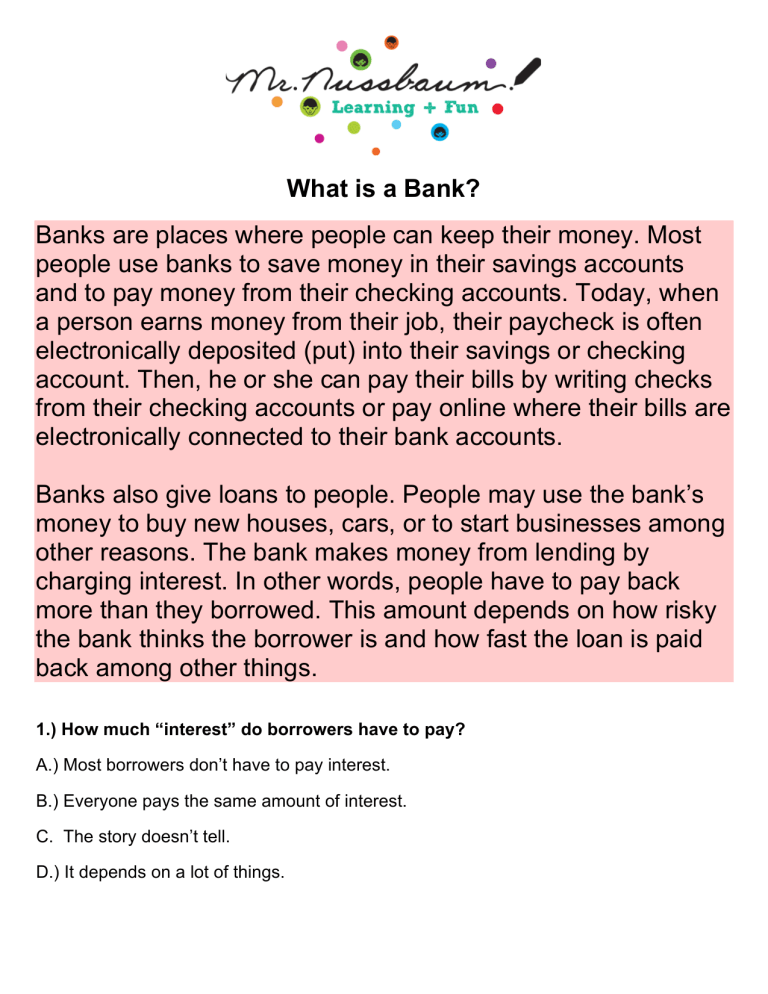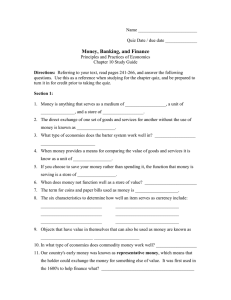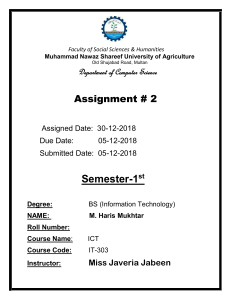
What is a Bank? Banks are places where people can keep their money. Most people use banks to save money in their savings accounts and to pay money from their checking accounts. Today, when a person earns money from their job, their paycheck is often electronically deposited (put) into their savings or checking account. Then, he or she can pay their bills by writing checks from their checking accounts or pay online where their bills are electronically connected to their bank accounts. Banks also give loans to people. People may use the bank’s money to buy new houses, cars, or to start businesses among other reasons. The bank makes money from lending by charging interest. In other words, people have to pay back more than they borrowed. This amount depends on how risky the bank thinks the borrower is and how fast the loan is paid back among other things. 1.) How much “interest” do borrowers have to pay? A.) Most borrowers don’t have to pay interest. B.) Everyone pays the same amount of interest. C. The story doesn’t tell. D.) It depends on a lot of things. 2.) What do people do with the bank’s money? A.) Buy houses B.) Buy Cars C.) Start Businesses D.) All of the above 3.) How do banks make money? A.) By saving customer deposits. B.) Charging interest to those they lend to. C.) By having a lot of accounts. D.) Electronically. 4.) How does “interest” work? A.) Banks pay people more money than they borrowed. B.) Banks require people to pay back money they borrowed very quickly. C.) Banks require people to pay back the same amount of money they borrowed. D.) Banks require people to pay back more money than they borrowed. 5.) What do banks NOT do? A.) Help people get jobs. B.) Provide a place where people can pay their bills from. C.) Provide a place where people can save their money. D.) Lend money to people.



